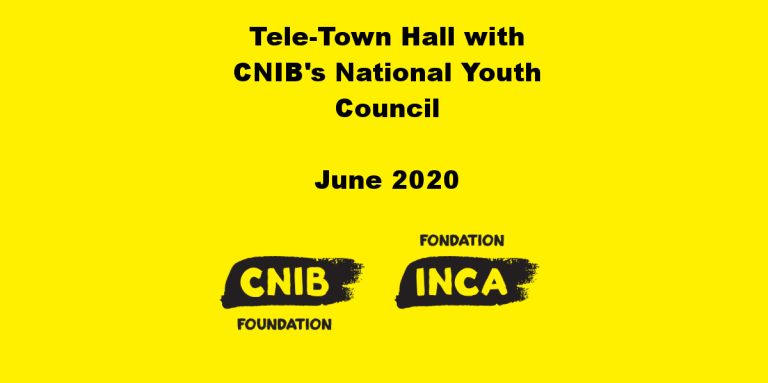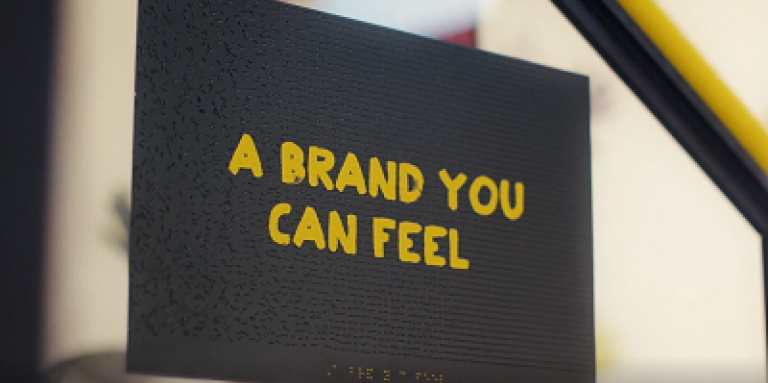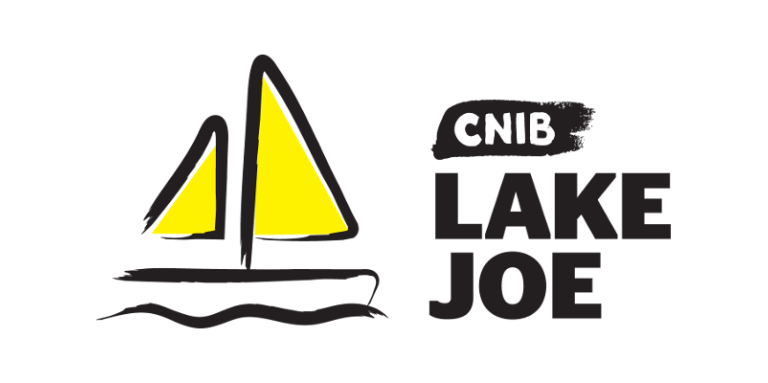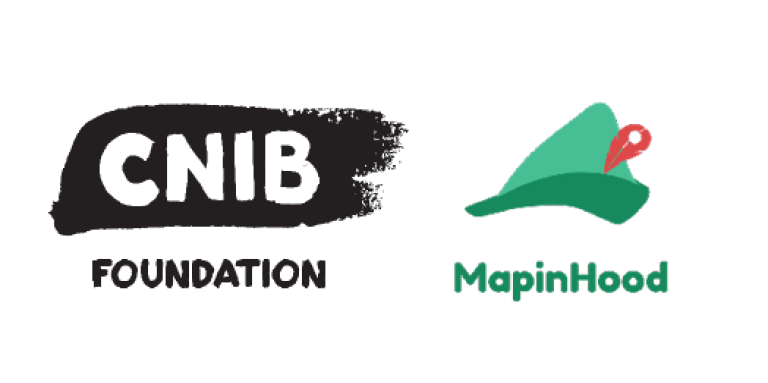News

Legislation on COVID-19 disability payments receives Royal Assent
On Monday, Bill C-20 received Royal Assent. This legislation will provide a one-time, non-taxable and non-reportable payment of up to $600 to support Canadians with disabilities to assist with expenses incurred during the pandemic.

Accessibility of Insulin Devices Survey
CNIB's advocacy team is conducting research about the accessibility of insulin pumps for people who are living with diabetes and sight loss. As part of our research, we are launching a survey that will help us better understand the accessibility issues people face when administering insulin.

Tele-Townhall with CNIB's National Youth Council
Join CNIB's National Youth Council to learn about federal government supports and programs for students in response to COVID-19.

The CNIB Foundation’s Angela Bonfanti Chats with Joan Kelley Walker
Angela Bonfanti, the CNIB Foundation’s Senior Vice President of Foundation Programs, recently chatted with Joan Kelley Walker about how the Foundation is adapting its summer programming and fundraising initiatives in a time of COVID. Watch their chat and learn more!

CNIB Response: Small to Medium Business Barriers Consultation – June 2020
We are pleased to take this opportunity to respond to the provincial government's consultation on developing the small business success strategy for Ontario. There are approximately 681,000 Ontarians living with sight loss.

CNIB Response: Ontario’s Plan to Reopen Schools – June 2020
We thank the Ministry of Education for the opportunity to provide input into Ontario's plan to reopen schools and summer educational programs for students. It is estimated there are 1,500 to 2000 students in Ontario who are blind or partially sighted. For years, parents, students, educators and organizations have been advocating to improve the education system to ensure students with sight loss have opportunities to thrive developmentally and academically at every stage of their education.

Prime Minister announces supports for Canadians with disabilities to address challenges from COVID-19
COVID-19 has created a myriad of new challenges while highlighting existing barriers for Canadians who are blind or partially sighted. Today, during National AccessAbility Week, the Prime Minister made a significant announcement regarding financial support available to Canadians with disabilities in response to the pandemic.

CNIB Foundation launches its tactile brand
During National AccessAbility Week (May 31-June 6), the CNIB Foundation, Canada’s largest non-profit supporting people who are blind or partially sighted, is proud to launch the organization's tactile branding project, a new aspect of the brand that’s not designed to be seen.

Message to CNIB Lake Joe Family
We hope you're staying healthy and safe during the COVID-19 pandemic. On May 19, the Government of Ontario announced that overnight camps will not be permitted to operate in the summer of 2020. While this is very difficult to hear, CNIB Lake Joe understands and supports this decision as it puts health and safety first. We are truly disappointed that cancelling in-person programs at CNIB Lake Joe means we won't see you at camp this summer, but we know there is so much to look forward to, with brighter days ahead. For now, we need to stay connected in other ways.

The CNIB Foundation announces partnership with accessible personalized navigation app, MapinHood
The CNIB Foundation is proud to announce their partnership with MapinHood, a personalized navigation app specifically designed to source accessible and safe routes in the city of Toronto.
Accessible navigation apps are often an essential tool for people with sight loss. They allow for independent, safe travel. But prior to the release of MapinHood, most navigation apps have been designed to meet the needs of drivers and transit riders, rather than for pedestrians.
Accessible navigation apps are often an essential tool for people with sight loss. They allow for independent, safe travel. But prior to the release of MapinHood, most navigation apps have been designed to meet the needs of drivers and transit riders, rather than for pedestrians.